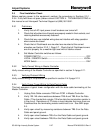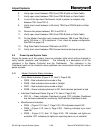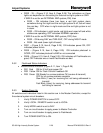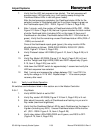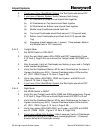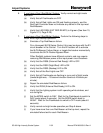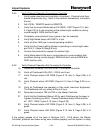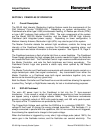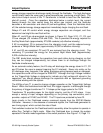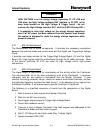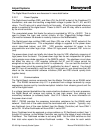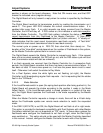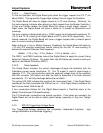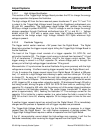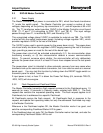
Airport Systems
SG-60 High Intensity Strobe System 3-1 Manual EPM-00000019 Rev A
SECTION 3. PRINCIPLES OF OPERATION
3.1 Overall Description
The SG-60 High Intensity Obstruction Lighting System meets the requirements of the
FAA Advisory Circular 150/5345-43E. Depending on system configuration, the
Flashheads are either type L-856 (simultaneous flashing, 40 flashes per minute (FPM))
or type L-857 (catenary flash pattern 60 FPM). The main components of the system
are the Model SGC-60 Master Controller and the Model SGF-60 High Intensity
Flashhead (with integrated power supply). Depending on tower configuration, a
Medium Intensity Antenna Obstruction Light (AOL) may also be part of the system.
The Master Controller detects the ambient light conditions, controls the timing and
intensity of the Flashhead flashes, monitors the Flashheads' operating status, and
provides alarm and status information to the tower operator. See Figure 2-10, Page 2-
25.
The Flashhead produces a flash of white light from a xenon flashtube. The Flashhead
Power Supply generates the high voltages and currents needed to trigger the flashtube
and create the flash itself. The Flashhead Control Logic receives communications from
the Master Controller, and sets the flash brightness and timing accordingly. The
Flashhead Control Logic also provide a status reply when queried by the Master
Controller.
The Master Controller and Flashheads communicate with electrical signals carried on a
single twisted-pair cable (two signal conductors). Any transmission from either the
Master Controller or a Flashhead uses both signal conductors together (only one
device can be transmitting at any given time).
Both the Master Controller and Flashhead have override switches allowing the operator
to select Day, Twilight, or Night Modes manually for test or troubleshooting purposes.
3.2 SGF-60 Flashhead
The main AC power input to the Flashhead is fed into the T1 ferro-resonant
transformer. It can accept a variety of input voltages depending on how the primaries
are tapped (using a special voltage selector block). The transformer secondaries
provide a regulated outputs of 2000 volts peak-to-peak, and 450 volts peak-to-peak.
The inputs of the T1 transformer are protected by fuse F1.
The Trigger/High-Voltage card rectifies the 2000Vp-p to a pulsating 2000VDC. This
voltage is then used to charge the energy storage capacitors. The flashtube V1, is
always connected in parallel with the capacitors, but it is non-conductive until triggered,
thus allowing the capacitors to charge to their peak voltage.
When the flashtube is triggered by a very short, high-voltage pulse (about 15KV), the
xenon gas in the flashtube ionizes, and the flashtube can conduct electricity. The



